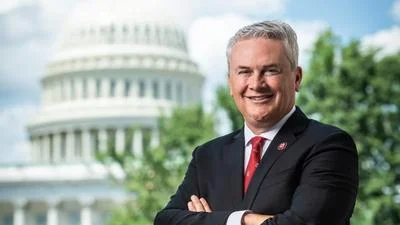Washington, D.C. -Today, Rep. Carolyn B. Maloney, the Chairwoman of the Committee on Oversight and Reform, and Rep. Stephen F. Lynch, the Chairman of the Subcommittee on National Security, sent a letter to the Department of State, U.S. Agency for International Development, Department of Homeland Security, and Department of Defense responding to their refusal to testify at an upcoming National Security Subcommittee hearing on the United States’ strategy to promote peace and security for women around the world.
“It is deeply disturbing that the Trump Administration’s continued resistance to Congressional oversight extends to such an important matter as the rights of women and girls around the world," Maloney and Lynch wrote.
On June 17, 2020, Subcommittee Chairman Lynch invited officials from all four agencies to testify at a remote hearing before the Subcommittee to examine the Trump Administration’s Women, Peace, and Security Strategy and the implementation plans released by each Department on June 11, 2020.
Although representatives from each agency participated in a webinar forum hosted by the American Enterprise Institute on this topic on June 11, 2020, the Trump Administration refused to allow them to attend the Subcommittee’s hearing.
“Unfortunately, it appears that the Trump Administration has one standard for allowing its officials to appear before friendly conservative organizations and another standard for allowing them to testify before Congress as it conducts its responsibilities under the Constitution," the Chairs wrote.
Since assuming office, the Trump Administration has aggressively pursued policies that conflict with its own Women, Peace, and Security Strategy.
For example, the Strategy claims that the Administration will “prevent and respond to violence against women and girls" by “supporting multilateral efforts, including at the United Nations (UN), to address violence in conflict, including sexual violence, human trafficking, and slavery." However, the Administration threatened to veto a UN resolution aimed at combatting the use of rape as a weapon of war “because of its language on reproductive and sexual health," resulting in a significantly watered-down resolution.
Even worse, the Trump Administration’s peace negotiations with the Taliban, which resulted in an agreement on Feb. 29, 2020, did not include any guarantees to protect the rights of women and girls, instead leaving the issue to be handled internally. During the 1990s, the Taliban brutally oppressed women and girls, who “were prohibited from attending school, barred from seeking employment, and could not go outside without a male guardian."
“The Subcommittee has significant questions about how your departments plan to implement the Women, Peace, and Security Strategy, but your refusal to make witnesses available to testify does a disservice to this mission and sends the wrong message to our allies and partners about the United States’ commitment to promoting the rights of women and girls around the world," the Chairs wrote.








